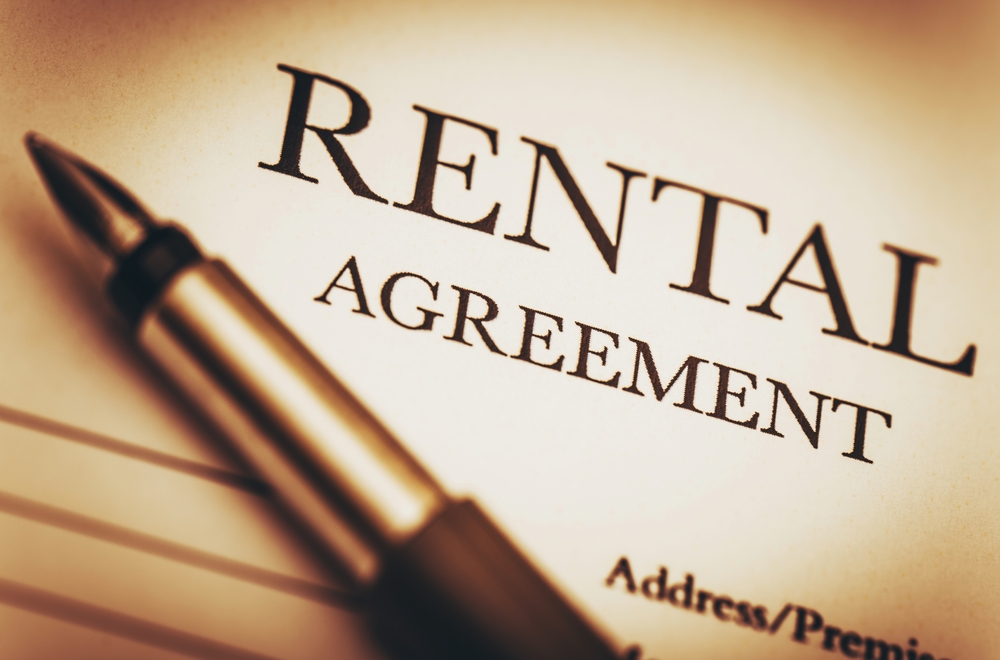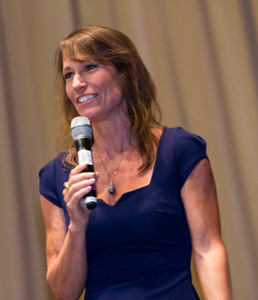This is a transcript of a previously-aired “Real Estate News” podcast broadcast by Kathy Fettke, co-CEO and founder of the Real Wealth Network.
The old American Dream maybe isn’t for everybody… At least if it comes with a mortgage. That’s why a new American Dream, renting, seems to be taking shape in the land of the free – one that promotes a lifestyle without financial anchors or home repair responsibilities.
Zillow writes in a blog that owning is almost “twice” as affordable as renting but that while some former homeowners can’t afford to get back into the game, others are thrilled to be renting. For them, gone are the worries that haunt homeowners such as roofs that leak and lawns that need mowing. When something goes wrong, they just call the landlord. They feel like they are on vacation as renters.
Zillow claims that some people say they’ve become even more prosperous because they didn’t buy a home. Instead of sinking their money into down payments, mortgages, taxes, insurance, and maintenance, they say they have invested that money into other ventures, and made millions.
Some people even buy property to rent while they rent a home or apartment for themselves. That gives them the benefits of real estate investing and the mobility of renting.
Defining the “American Dream”
The point that Zillow is making is that homeownership isn’t for everyone. The Census Bureau shows the current homeownership rate at 63.7%. But despite the fact that our culture still values homeownership, at a rate that is above 50%, there’s a certain segment of the population that prefers renting.
Zillow CEO Spencer Rascoff and Chief Economist Stan Humphries co-authored a book called: “Zillow Talk: The New Rules of Real Estate.” In one chapter, they argue that the definition of the American Dream should no longer include homeownership.
They say: “Buying a home is a gamble” because it means living in one place and making mortgage payments for possibly decades into the future. And that’s a deal breaker for some people.
And making money on real estate means you have to hold on to it for a certain length of time to “break even”. That’s the point at which you have recouped your upfront expenses, and can start making a profit on your investment.
In the fourth quarter of last year, Zillow reports that the U.S. Breakeven Horizon was 1 year and 11 months. But for some pricier markets, the breakeven horizon is much longer.
So staying put until you “break even” makes financial sense, and in years past it wasn’t even an issue. People bought homes with 30-year mortgages fully intending to remain in those homes for at least 30 years.
Priorities are shifting. A new Freddie Mac Survey, shows despite renters having more money in their pockets, many plan to stay right where they are.
It shows a six-percent increase in the number of people that say renting is a good option for them — from 46% in January of last year to 52% in March of this year. Although plenty of renters still plan to buy homes, the percentage of renters who expect to do that fell from 45% to 41%. And, the number of renters who are actively working toward a homeownership plan dropped from 21% to just 15%.
The survey shows that most renters prefer to live urban areas. Three out of four of them said they are willing to downsize to make that happen. And if you look at NerdWallet’s formula for calculating the cost of owning versus renting, homeowners are getting the short end of the stick.
Renting vs. Owning: Is the “Monthly Homeownership Premium” Worth It?
NerdWallet used U.S. Census data to calculate month-to-month expenses. For renters, the expenses include the monthly rent and utilities. For homeowners, the expenses include the mortgage, property taxes, home insurance, and utilities.
The figures do “not” include the cost of a down payment. And they do not include other financial advantages of homeownership like tax deductions for mortgage interest and home value appreciation.
Based on this calculation, homeownership is 33 to 93% more expensive than renting across the nation. NerdWallet calls it the “monthly homeownership premium.” This premium varies from state to state. As a nationwide median, owning a home is 54% more expensive than renting.
The state where the gap is the narrowest is Florida. It has a 33% homeownership premium and is followed closely by Colorado and Arizona.
At the other end of the scale is New Jersey with a huge 93% homeownership premium. That’s almost “double” what renters pay each month. Rhode Island and Connecticut are almost as expensive.
New Priorities, New Dream
Some renters who cast aside the burden of homeownership are adopting new priorities. An organization called “New Dream” strives to: “change behavior, attitudes, and social norms to reduce consumption and build community.” The website says: “We envision a society that pursues not just “more”, but more of what matters — and less of what doesn’t.”
Even the name of the organization changed this year, from “Center for a New American Dream” to simply “New Dream”. The rebranding is meant to emphasize a more international reach that encourages people to reduce consumerism and materialism around the world.
The American Dream has been transforming for years. Back during the Great Depression, it was “a chicken in every pot and a car in every garage” along with homeownership.
Six years ago, Suzie Orman wrote about the death of the “old” American dream in her book “The Money Class”. ABC reported her as saying: “Everybody in America started to define themselves by all these things they had around them. And all of a sudden it came tumbling down. So the old American dream has died, and that is a good thing.”
She says the New American Dream includes an emphasis on family, responsibility, and living within your means. She says the American Dream is when you are not “spending every penny” but rather “living a life where you can sleep at night and you are actually happy.”
She has even predicted that 60% of Americans will become renters as the New American Dream takes hold. We’re not there yet, but that percentage is rising.
A larger renter pool is certainly good for landlords. It ensures we’ll have plenty of demand for our properties.
However, is this new attitude good for renters? As I said, homeownership isn’t for everyone. But if you look around you, those who hold the greatest wealth are probably the people who’ve held onto property for decades.
My neighbor, for example, told me his parents bought their beachfront lot in Malibu for $5000 back in the 50’s. That home is worth over $5M today.
If homeowners can pay off the mortgage and own the home free & clear after 30 years (or in half that time if an extra mortgage payment is made every year), then there’s no question which choice is better. Paying no rent in 30 years, at retirement age, is better than paying rent.
























0 Comments